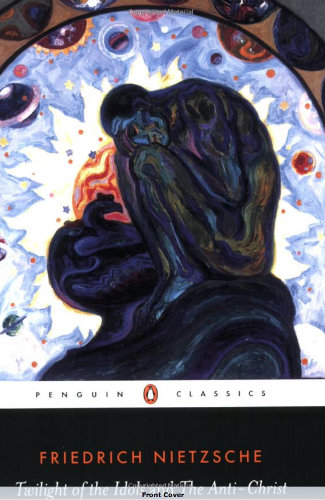Götzen-Dämmerung, oder, Wie man mit dem Hammer philosophiert, 1889. Recommended translation: Nietzsche, Friedrich. Twilight of the Idols and The Anti-Christ. Translated by R. J. Hollingdale. London: Penguin Books, 1977.
Excerpt:
In every age the wisest have passed the identical judgment on life: it is worthless. . . . Everywhere and always their mouths have uttered the same sound – a sound full of doubt, full of melancholy, full of weariness with life, full of opposition to life. Even Socrates said as he died: ‘To live – that means to be a long time sick: I owe a cock to the saviour Asclepius.’ even Socrates had had enough of it. – What does that prove? What does it point to? – Formerly one would have said (– oh, and did say, and loudly enough, and our pessimists most of all!): ‘Here at any rate there must be something true! The consensus sapientium is proof of truth.’ – Shall we still speak thus today? are we allowed to do so? ‘Here at any rate there must be something sick‘ – this is our retort: one ought to take a closer look at them, these wisest of every age! Were they all of them perhaps no longer steady on their legs? belated? tottery? decadents? Does wisdom perhaps appear on earth as a raven which is inspired by the smell of carrion?
Online:
Amazon (Recommended Translation)
Nietzsche Source (Read Free Online in German)
Nietzsche.holtof (Read Free Online in English)
